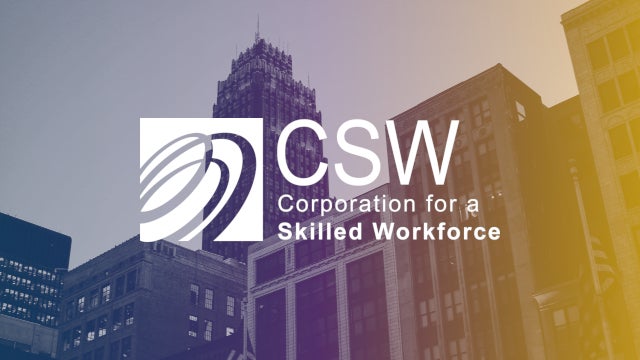
The Institute for Corporate Productivity (i4cp) and the Aspen Institute UpSkill America initiative released a report investigating the disconnect between the numerous development opportunities that companies offer and the lack of career mobility that frontline workers face.
For years, it’s been clear that the job market in the United States is changing: many positions now require more education, more experience, and more skills. In fact, many of the five million jobs that are currently unfilled include these heightened requirements, and current estimates anticipate an additional 2.5 million middle-skill jobs will be added by next year.
Frontline workers in the US — the 24 million people whose education levels are generally at or below the associate degree level, and whose median annual wages fall below $40,000 — might be prime candidates to fill many of these positions if they are given the opportunity to develop additional skills and knowledge.
Recognizing this, 89 percent of employers currently provide development opportunities, as revealed in the study “Developing America’s Frontline Workers,” recently released by the Institute for Corporate Productivity (i4cp) and the Aspen Institute UpSkill America initiative. Furthermore, 98 percent of those surveyed intend to maintain or grow these programs. So where is the disconnect?
Evidently, the best intentions fail to make a difference without proper follow-up. Nearly three-quarters of businesses surveyed do not measure how many of their frontline workers take advantage of opportunities offered, and of those who do, don’t track the kind of upward career mobility workers have experienced. The report offers four recommendations for employers to ensure their organization is maximizing the support it provides to employees:
Talk to your employees about training opportunities.
Are employees aware of developmental programs? Even if your organization is too small to offer your own training sessions, it is likely that employee skill-building opportunities exist in the local community and online. Make sure that you are using effective communication channels to inform employees, starting from the moment they join and go through a human resources orientation. Additionally, human resources should provide information about financial assistance and flexible work arrangements to facilitate employee participation in these opportunities.
Hold managers accountable.
Managers are invaluable in the development of frontline workers because they are the best situated to “identify, direct, and develop” employees who have potential and who could make significant contributions to the success of the business. That said, frontline managers are typically subject to “too many conflicting responsibilities” and “limited bandwidth,” taking a much more generalized approach toward supporting their employees as a result. To change this, performance appraisals should both incentivize and hold managers accountable for reinforcing development opportunities.
Make education accessible.
Completing high school education and obtaining a post-secondary degree is crucial to career advancement for frontline workers. Thanks to the Internet, marking these checkboxes has never been easier, but employers can do even more to improve the accessibility of education for workers and their families through tuition assistance and educational partnerships. For example, in 2010, retail giant Walmart partnered with online educational institution American Public University to provide degree programs requiring less time and money.
“Walmart provides a 15 percent tuition grant, which is available to all associates and eligible family members,” explained Brian Poland, director of lifelong learning and talent development for the company. “Degree-seeking associates and eligible family members are provided required textbooks and materials at no charge with the company-provided book grant.”
Coupled with its full sponsorship of online high school education, Walmart’s emphasis on accessible education sets a good example for other companies. Overall, if more employers were to focus on educational development, they would eventually find qualified candidates for the positions they seek to fill.
Provide apprenticeship opportunities.
Complementary to advancing your education is enhancing your work experience. For frontline workers, apprenticeships are not only a way to develop new skills — they are straightforward paths into thriving industries, many of which offer substantial salary increases. According to the study, nearly 9 out of 10 apprentices are employed after completing their apprenticeships, earning an average wage of more than $50,000. This is true of participants in the shipbuilding apprenticeship program at Newport News Shipbuilding in Newport News, Virginia. Instituted in 1919, the program graduates individuals who face average annual earnings of $58,000 in their first year. In addition, the program offers a wide range of additional benefits, such as paid time for academic classes, automatic salary raises, and guaranteed employment with the company upon apprenticeship completion.
Overall, an employer can be more than just a stream of paychecks for a frontline worker — it can be the ticket to higher education and skill levels that many employees desperately want. Through taking advantage of these recommendations, organizations can ensure that they are helping their employees reach these goals and eventually attain a better quality of life.

